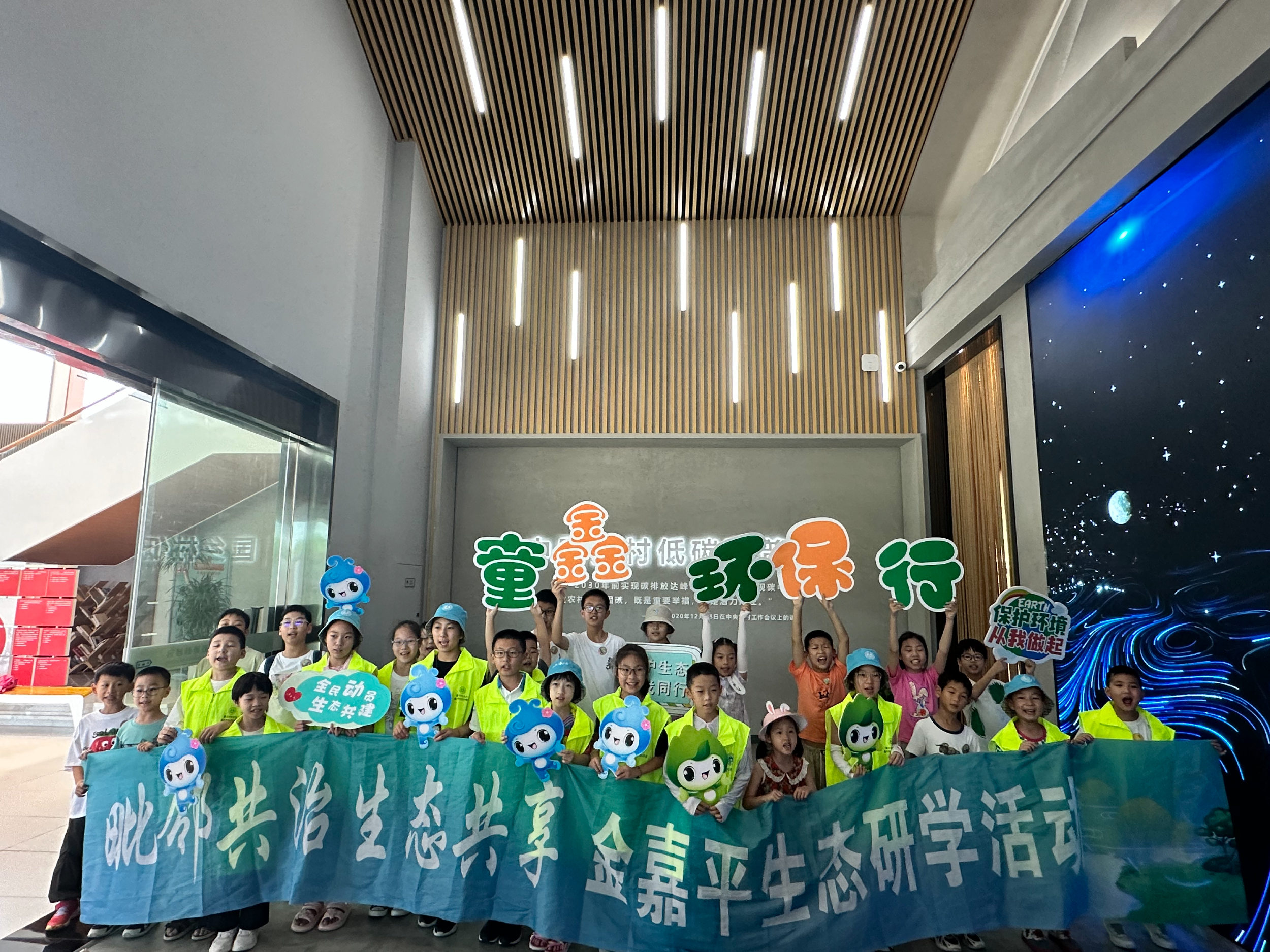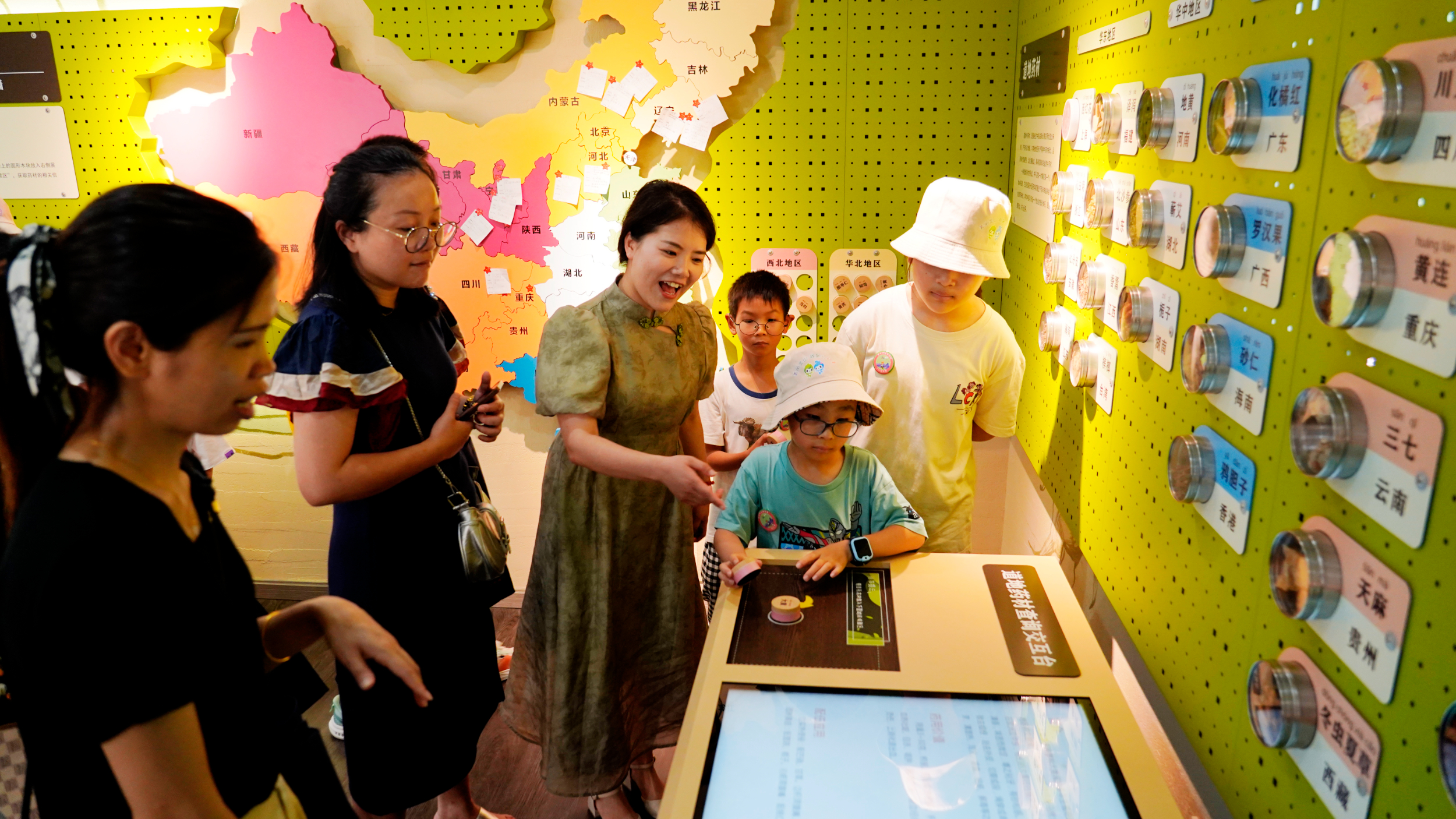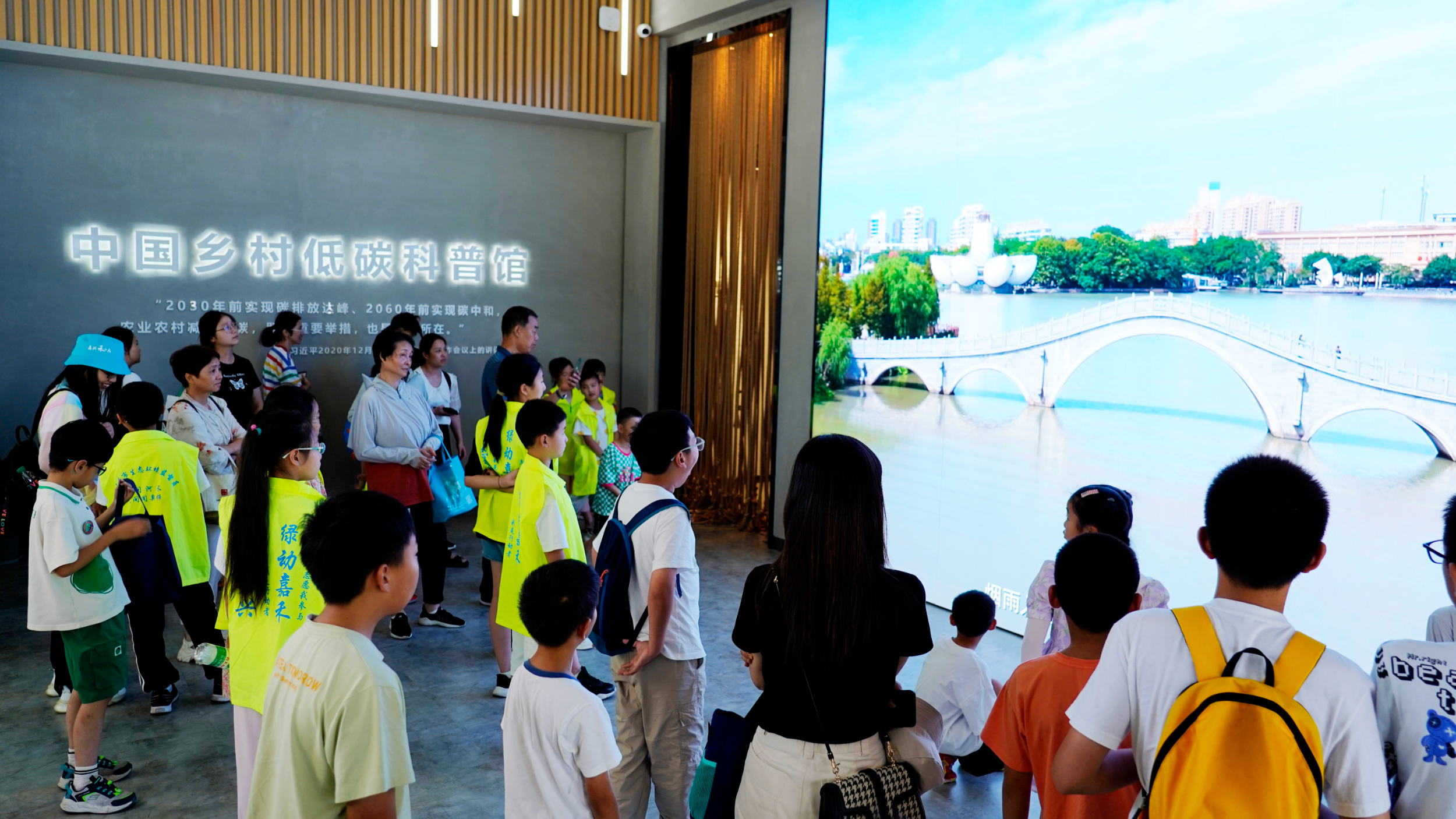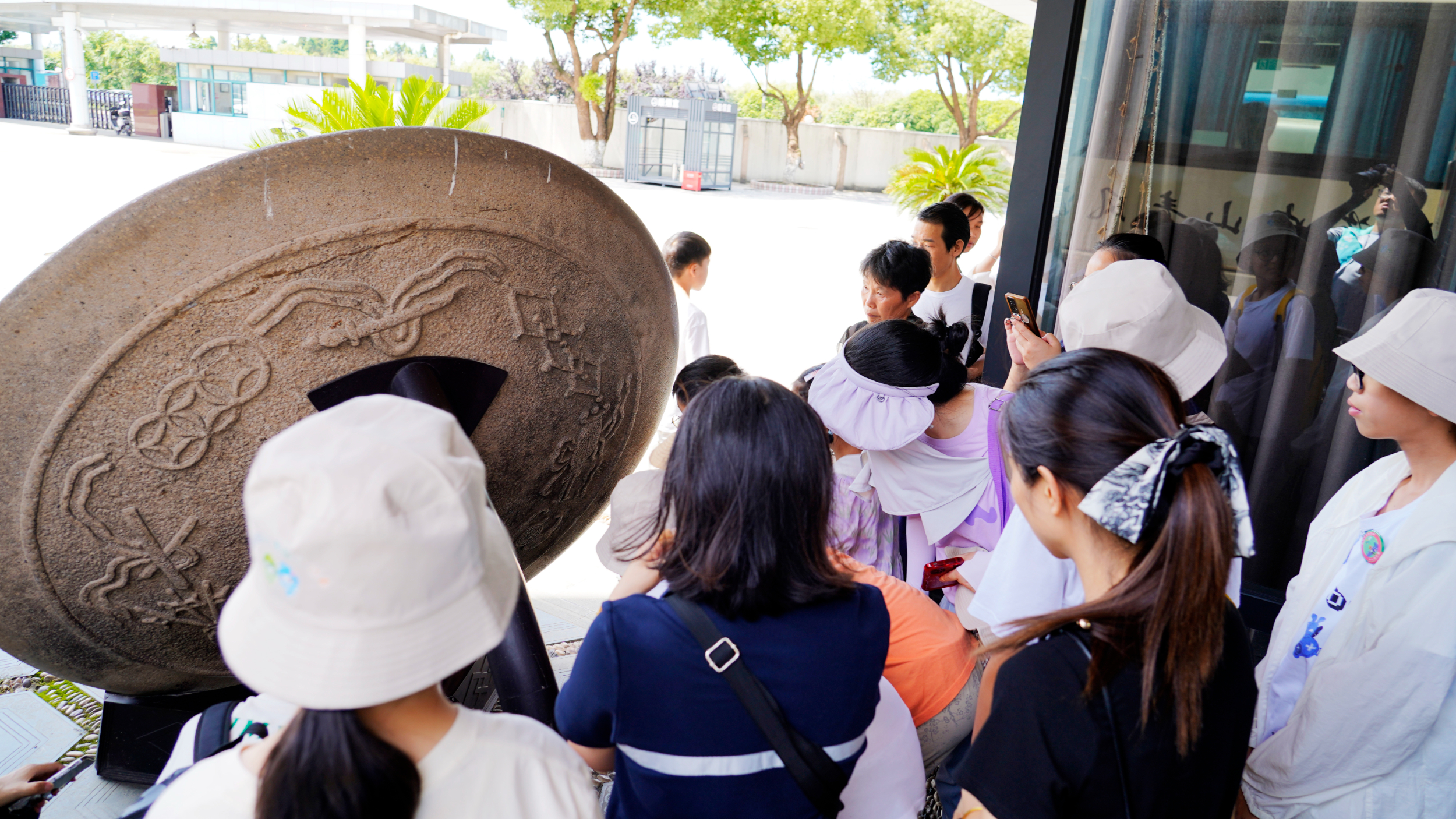30 groups of parent-child families join hands to launch a cross-regional ecological "city walk"
"Everyone, let's go!" On the morning of July 16, Wu Xiaorong, deputy director of the Propaganda Department of the Jinshan District Committee of Shanghai City and director of the District Civilization Office, had just finished speaking when 30 groups of parent-child families couldn't wait to take a step forward and launch the first "Tongxin Environmental Protection Tour" in 2024. Practical activities with the theme of ecological research.
It is reported that this research activity was co-sponsored by the Jinshan District New Era Civilized Practice Center and the District Ecological Environment Bureau. The Jinshan District New Era Civilized Practice "Green Walker" Volunteer Service Team convened 30 groups of parent-child families from Jinshan District Shanghai City and Jiaxing City of Zhejiang Province to participate. Relying on the high-quality resources of the Jinjaping area and combining the characteristics of various places, the activity carefully designed five study routes to allow young people to vividly understand relevant scientific knowledge such as ecosystems, biodiversity, and climate change, and popularize environmental education and environmental protection legal knowledge from the original one-way, passive "indoctrination" to a two-way, interactive "heuristic", allowing young people to realize the beauty of nature's ecology and start from themselves and actively participate in environmental protection actions.
Before setting off, the children were still a little ignorant of the terms "biodiversity" and "low-carbon environmental protection", but through visiting and learning about the "Baicao Youyue" Innovation Laboratory (Traditional Chinese Medicine Theme Hall) of Fengjing Primary School Affiliated to Shanghai University of Traditional Chinese Medicine, Jinfeng Wine Museum and China Rural Low-Carbon Science Museum, after completing an ecological "city walk", the children rushed to raise their hands and said: "I know the meaning of biodiversity."

Exploring biodiversity in the "Five Flavors Garden" and "Wine Hall"
"These are vegetables with the same origin of medicine and food, and these are aromatic Chinese herbal medicines..." In the "Baicao Youyue" Innovation Laboratory of Fengjing Primary School Affiliated to Shanghai University of Traditional Chinese Medicine, which is also the school's traditional Chinese medicine theme museum, the children listened while listening to the school teacher's explanation, while learning about the family, functions and other knowledge of vegetables and Chinese herbal medicines.
This century-old school was established in 1905 and is now a characteristic primary school with cultural elements of traditional Chinese medicine. In addition to the many vegetables and physical objects or specimens of traditional Chinese medicines listed in the "Baicao Youyue" Innovation Laboratory (Traditional Chinese Medicine Theme Museum), more than 100 kinds of Chinese herbal medicines are also planted in the "Five Flavors Garden" on the campus, allowing children to "Immersive" Learn to identify vegetables and medicinal plants with the same origin of various medicines and foods.

"It turns out that our country is one of the countries with the richest biological diversity in the world." The teacher's explanation allowed the children to gain new knowledge and understand that the rich biological resources in this vast land provide a solid material foundation for the development of traditional Chinese medicine. Through the "Medicine-Food Homogeneous" interactive experience system and other equipment in the museum, children in the two places also learned about nearly 100 common medicine-food-homologous traditional Chinese medicines, vegetables, etc. The form of physical objects and words allowed children to open up different immersive biodiversity learning experience.
"The edamame we usually eat can replenish gastric acid and nourish the skin; kale can clear the fire and reduce the heat. It turns out that even the vegetables we often eat in life have so many different types and effects." Wang Wuji, who is in second grade at Jiaxing Fucheng Primary School, and his mother lamented.
At Jinfeng Wine Hall, children have a better understanding of biodiversity. Children who grew up in Jinshan and Jiaxing are no strangers to rice wine, but most children have never seen how rice wine is made. "It turns out that rice wine is made from rice or wheat and water as raw materials." The children followed the guide to visit the brewery and carefully observed how the rice was washed and steamed, spread and cooled in the sun, but then mixed into the rice yeast and placed in a jar for fermentation multiple times. Then, it went through a series of squeezing, sealing, and blending. Only then can the rice wine with a mellow taste be finally formed. "It turns out that the method of using biology to process food has been around for thousands of years." Everyone thinks that those ancient wine-making tools and life wisdom are very interesting."The teacher said that biodiversity is the foundation of our lives. It is organisms such as rice and wheat that provide us with most of the physical objects. We must be grateful to nature and protect nature."
Discover the beauty of low-carbon life in rural fields
After learning about biodiversity, the children came non-stop to Ma Ma Village, Caoqiao Street, Pinghu City to visit the China Rural Low-Carbon Science Museum and learn about the beautiful picture of green and low-carbon life slowly unfolding in the rural fields.

Ma Ma Village is located in the southwest of Pinghu City. It is a traditional small village in the south of the Yangtze River. Now, it has won honors such as National Beautiful and Livable Demonstration Village, Beautiful Rural Boutique Village in Zhejiang Province, Forest Village in Zhejiang Province, and Ecological Village in Jiaxing City in the practice of ecological civilization.
Ma Ma Village practices and disseminates green and low-carbon concepts in daily production and life. Its rural low-carbon development achievements in recent years are concentrated in various data and scenarios displayed in the China Rural Low-carbon Science Museum.
As soon as they entered the Science Museum, the children were attracted by various digital display systems. The low-carbon production methods such as the "zero direct drainage" model of rice field water withdrawal promoted in the village, through digital graphic display, allow children and parents to understand the connotation of green and low-carbon production in a way they are familiar with; the multimedia interactive experience of garbage classification games allows children to practice while learning garbage classification knowledge. "It's fun and you can learn low-carbon environmental protection knowledge. It's especially fun." Small group members from the two places joined hands to play games,
As soon as we entered Ma Ma Village, we saw that many residential houses had single crystal photovoltaic roof panels on their roofs, and the Science Museum was no exception. "The science museum, which emphasizes digitalization and greening, itself uses environmentally friendly materials and low-consumption equipment, and uses light steel materials and wood as the main building materials to reduce carbon emissions during the material production process." The guide popularized green and low-carbon knowledge in architecture for children."At the same time, the museum also uses single crystal photovoltaic roof panels and solar panels for water heating and air heat regulation."
"Through today's study journey, I realize that any choice we make in life can affect the environment, even a small move." Lu Yuhao of Jinshan Jinwei Primary School said.

According to reports, Jin Jiaping's Ecological Research is already in version 2.0. In order to allow more young people to enter nature classrooms and further vividly understand relevant scientific knowledge such as ecosystems, biodiversity, and climate change, based on its smooth development last year, Jinshan and Jiaxing have once again joined hands to jointly explore more high-quality social resources for the practice of ecological civilization. In this ecological "city walk", children from both places worked across regions to explore the story of ecological civilization behind the integration of the Yangtze River Delta.
Liu Tiejun, deputy secretary of the Party Leadership Group and deputy director of the Ecological Environment Bureau of Jinshan District, said: "In recent years, Jinshan District has further deepened the education of ecological civilization for minors, planted green and low-carbon seeds in the hearts of minors in the district, stimulated their willingness to actively participate in environmental protection actions, and established and consolidated the concept of ecological civilization in the harmonious coexistence of man and nature in practice, thereby further promoting the ecological civilization practice in the district."







